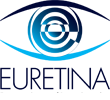According to the US District Court for the Northern District of West Virginia, US, a Regeneron patent (#11,084,865) has been successfully defended for certain ophthalmic formulations of Eylea. Regeneron sued Mylan in August 2022, arguing that a biosimilar of Eylea infringed certain intellectual property and this outcome for Regeneron will now extend Eylea’s commercial protection. The biosimilar, from Viatris’ Mylan unit, was the first to file for an Eylea biosimilar in 2021 and the subsequent biosimilar was then sold by Viatris to Biocon Biologics in a $3.33 billion cash-and-stock deal. Biocon’s biosimilar, termed “YESAFILI” has comparable efficacy, safety and quality to the reference product Eylea (aflibercept), which received marketing authorization approval from the European Medicines Agency (EMA) last year.
Yesafili (also previously referred to MYL-1701P) has been developed and authorized via the Centralised Procedure in the European Union under the Anatomical Therapeutic Chemical (ATC) classification system, as an ocular anti-neovascularisation agent. Aflibercept is a recombinant fusion protein consisting of portions of human VEGF receptors 1 and 2 extracellular domains fused to the Fc portion of human IgG1 formulated as an iso-osmotic solution for intravitreal administration. In Eylea, the active pharmacologic agent, aflibercept, acts as a soluble decoy receptor that binds to VEGF-A and PlGF, and thereby inhibits the binding and activation of their cognate receptors VEGFR-1 and VEGFR-2, which are expressed on the surface of endothelial cells. Activation through VEGFR-1 and VEGFR-2 is associated with neovascularization and vascular permeability, while inhibition of activation by Eylea (aflibercept) has been demonstrated to reduce both processes, with clinical benefit in the indicated disorders.
